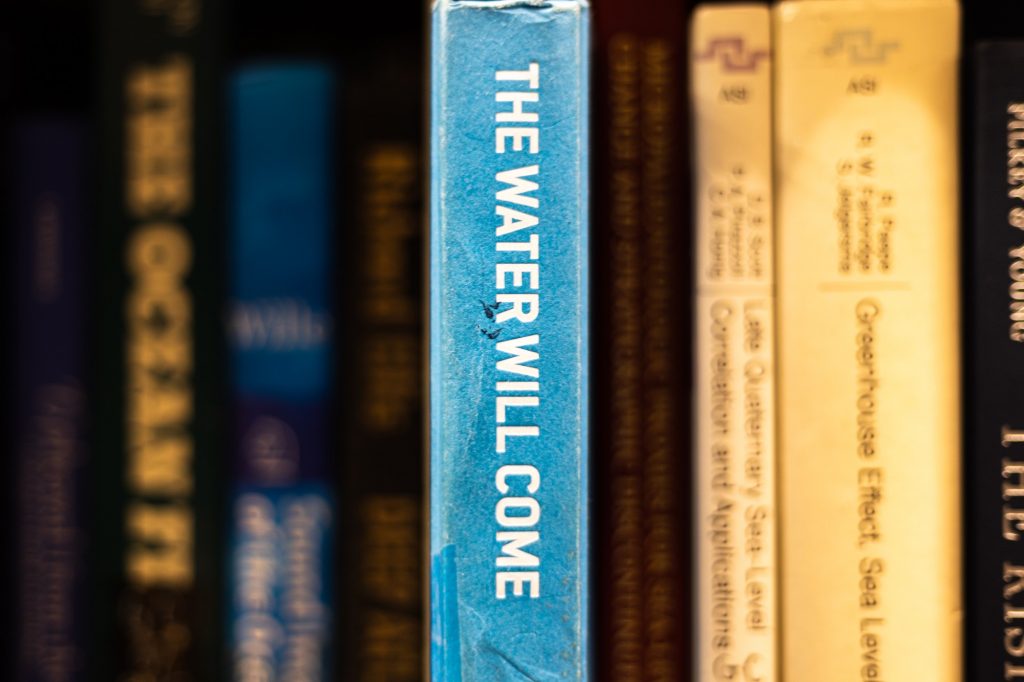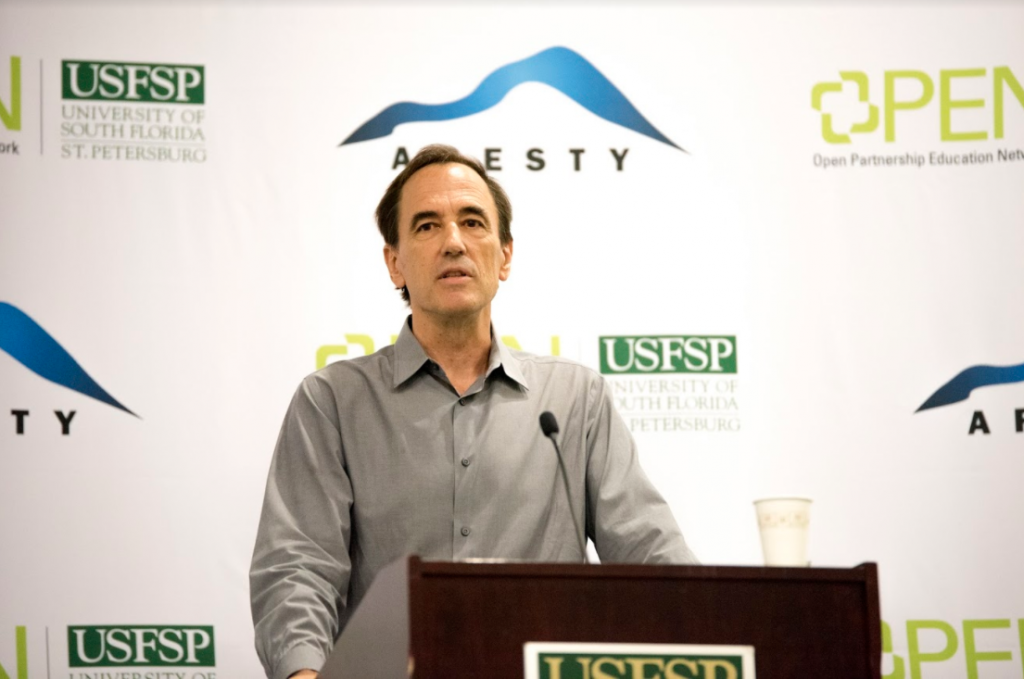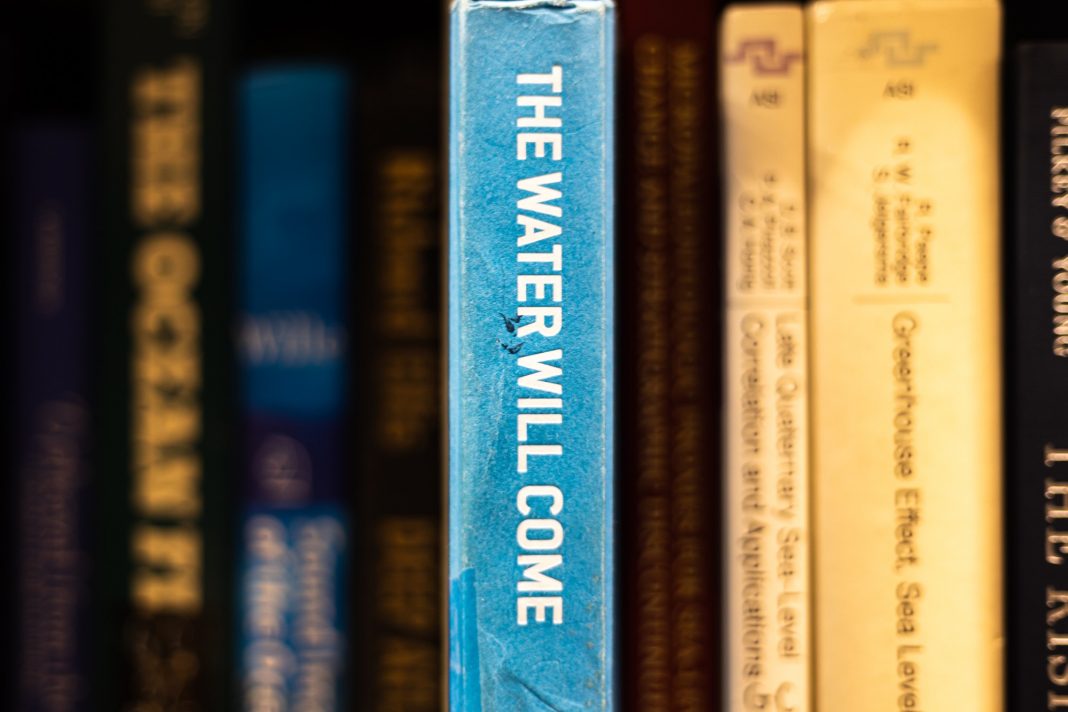“Miami is about fantasy, about reimagining yourself. It’s not about contemplating the moral implications of choosing to drive an SUV or worrying about water damage to your leather sofa,” author and environmental journalist Jeff Goodwell said in his 2017 book “the Water Will Come: Rising Seas, Sinking Cities, and the Remaking of the Civilized World.”
Selected as part of this year’s One Book, One U program, “The Water Will Come” is a powerfully-written study of the global effects of climate change that immerses readers into the realities of warmer temperatures, rising sea levels and the overall effects of our ecological footprint.
Goodell takes readers on a journey with him as he travels to places across the world where the climate crisis is most evident — Greenland, Alaska, Venice, Paris, Lagos, New York City and of course, Miami.

“The challenge in a book like this—and when thinking about climate change in general—is getting people to think about the future in a different kind of way,” Goodell said in an interview with Chicago Review of Books. “This was an attempt to use a literary, artful device to engage people immediately in what Miami could look like when a big storm hits in the not-so-distant future.”
Established in 2017, the One Book, One U reading program seeks to engage the campus community in understanding and taking action on a range of interrelated social justice issues. Recent selections have touched on topics like racial injustice, immigration, health disparities and the housing crisis.
Concerning the selection process, a diverse committee composed of students, staff and faculty gather each spring to nominate books they feel will inspire important discussions on campus. After a period of consideration, the committee reconvenes to discuss and then vote on the nominated books.
Among other books on climate change and environmental sustainability, Goodell’s book stood out to the committee for its relevance to UM. Despite its global scope, three of the book’s twelve chapters are set in Miami, with one even titled “Miami Is Drowning.”

In addition, the overall structure of “The Water Will Come” also made it a top contender.
“The book has a narrative style that makes it an exciting read, but it’s backed up and firmly ensconced in scientific fact and reasoning,” said Chantel Acevedo, co-founder of One Book, One U and Director of the Creative Writing Program in the Department of English.
Students, faculty and staff can participate in a variety of ways, from reading the book independently to attending One Book, One U events throughout the year.
“What makes this program unique is that the events are planned by the community — any student group, department or individual can propose an event that is in conversation with the topic of the book or the book itself,” Acevedo said.
In recent years, One Book, One U has hosted events like expert panel discussions, book club meetings, film showings and theatrical performances. Though this academic year’s events have yet to be announced, members of the UM community can look forward to a book talk with the author during the spring semester.
“Our hope is that everyone in the community has some kind of contact with the book and its topic,” Acevedo said.
Anyone interested in a free copy of the book can claim the Ebook or visit Richter Library’s Access Services desk while supplies last. Additionally, UM Libraries will soon provide instructor resources like reading guides and discussion questions, so make sure to visit their One Book, One U webpage to stay updated.







